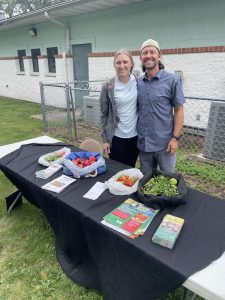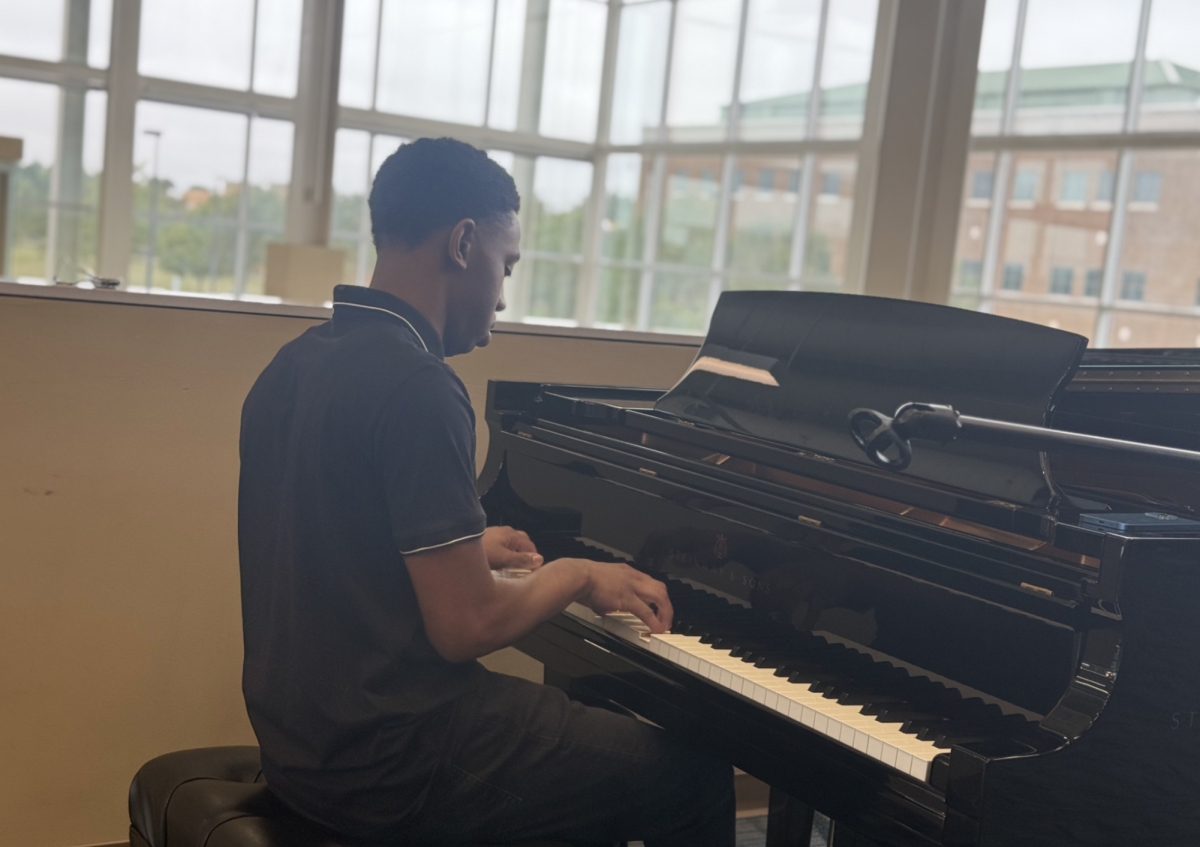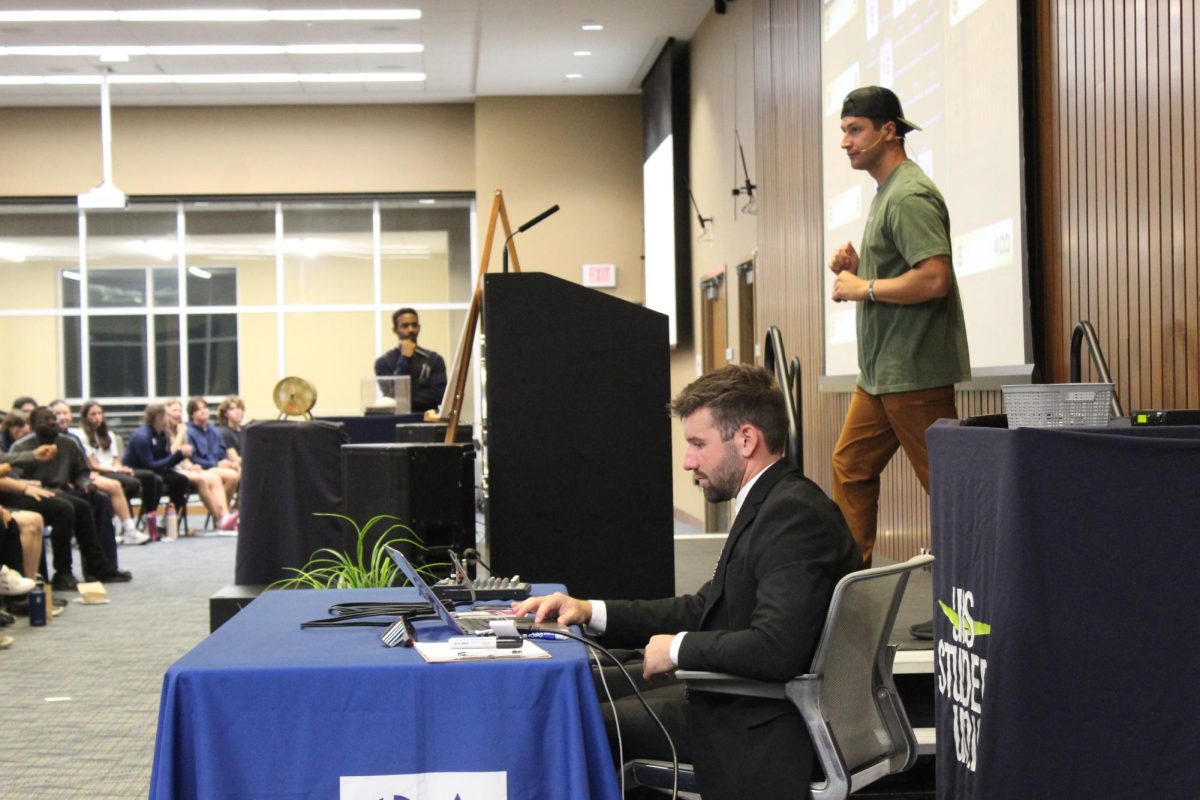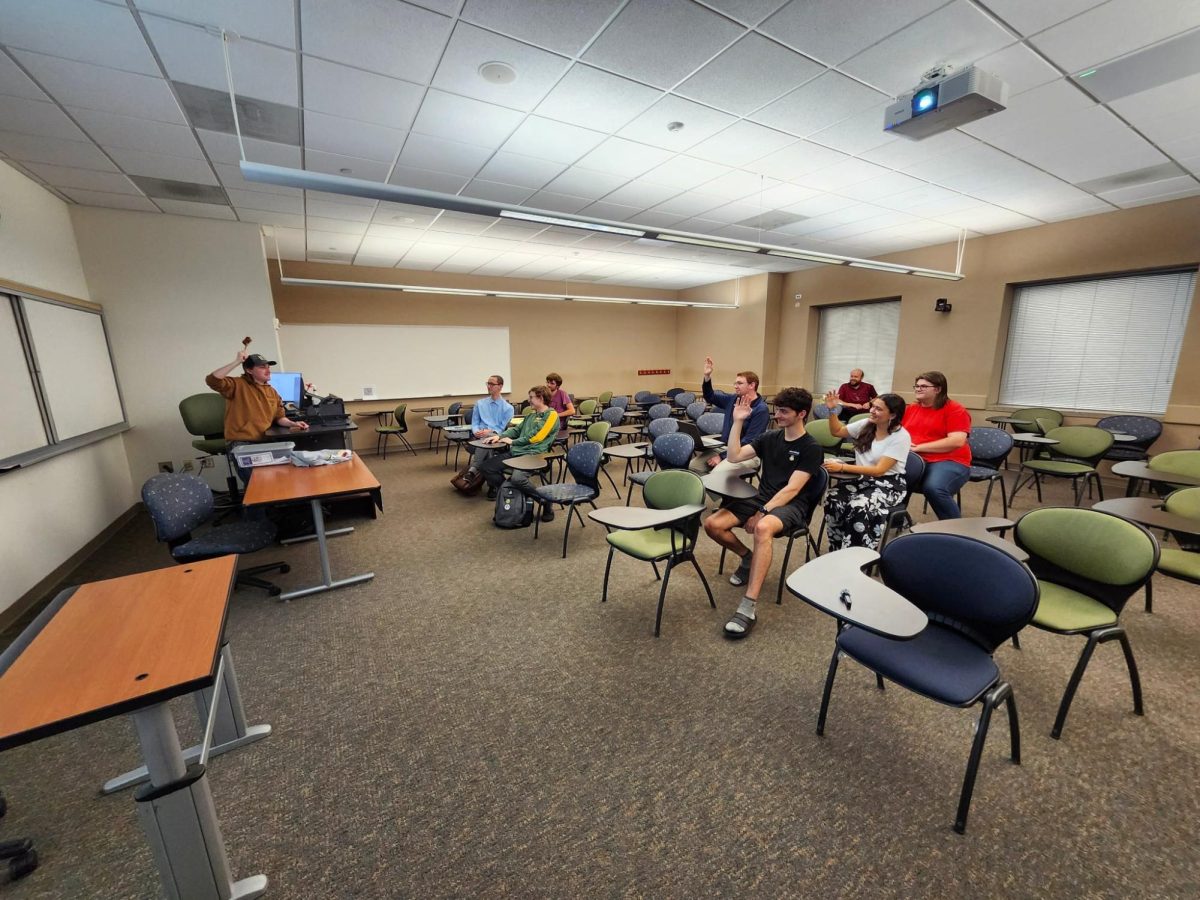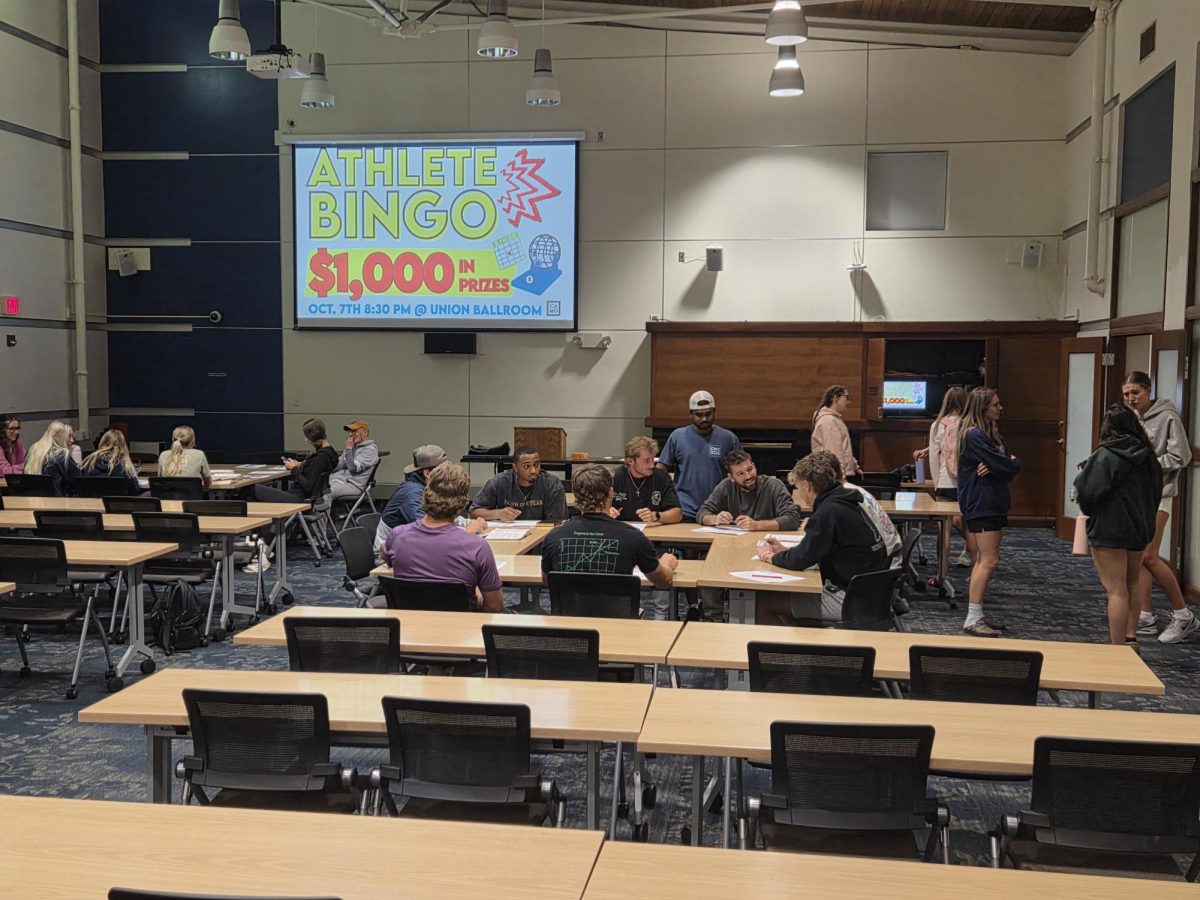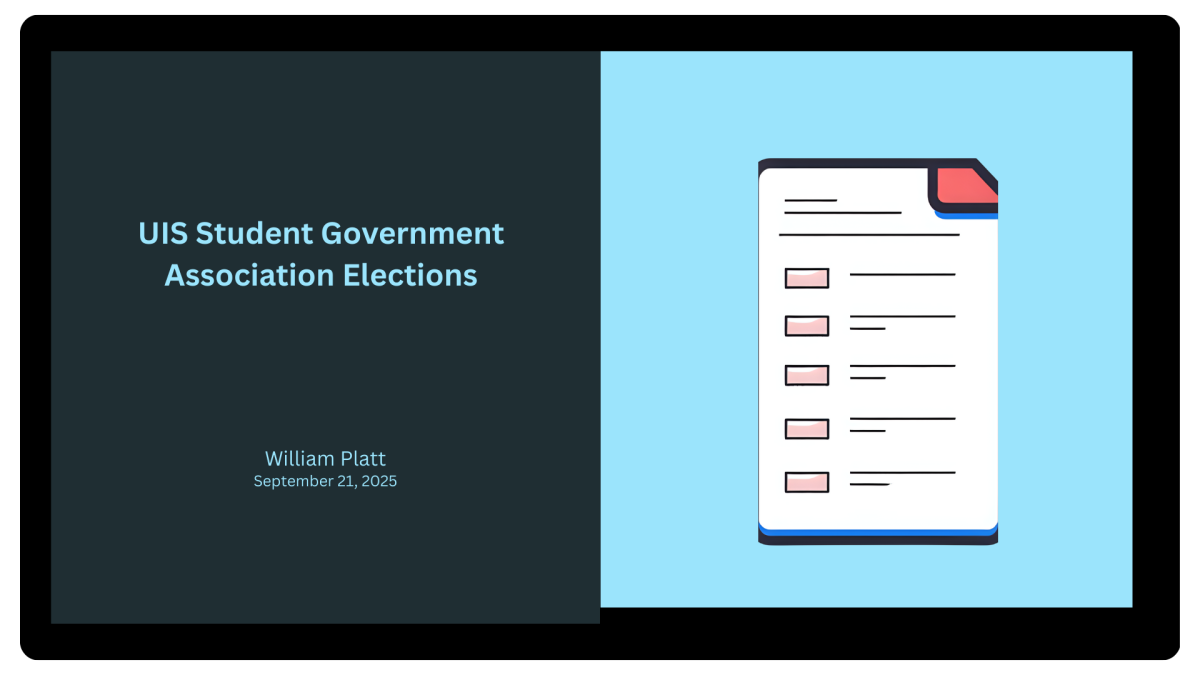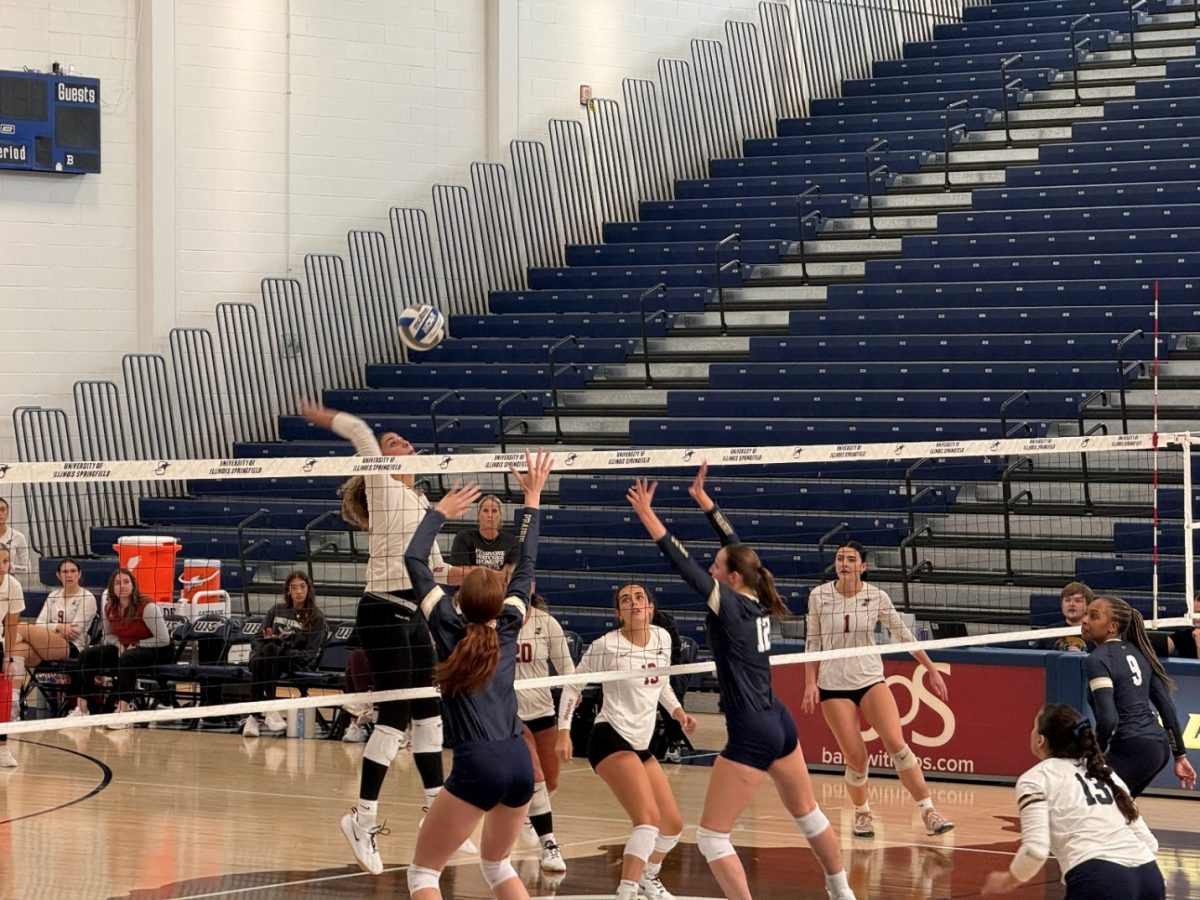On a late September day made windy and soggy from the remnants of Hurricane Helene hanging over the city, the Springfield Environmental Justice Task Force hosted its first event at Wheeler Avenue and Kansas Street on the east side of Springfield.
The city’s environment needs help, according to the seven organizations that came together for the event.
“There’s been a lot of new families moving to the east side, so with this new housing coming up, we wanted to educate them,” said Rosa Harper-Davis, community organizer for Faith Coalition for the Common Good, one of the task force organizations. “There’s a lot of power plant pollution, and asthma rates have been higher over here. People have also been fly dumping in our yards, and we need better sidewalks.”
Last October, the Illinois Attorney General filed a lawsuit against Springfield’s City Water, Light & Power for violating the Illinois Environmental Protection Act, Illinois Pollution Control Board regulations and CWLP’s Clean Air Act operating permit.
This lawsuit was in response to CWLP releasing a dust cloud of coal ash across the city in August 2021.
“CWLP has cooperated fully with the Illinois EPA and the Attorney General’s Office in this unfortunate situation,” said Amber Sabin, CWLP’s spokeswoman. “We are currently working on completing the final paperwork to close out this matter and are waiting to hear back from the Attorney General’s Office.”
Harper-Davis says this still affects communities on the east side of Springfield, an area where she says sidewalks are also crumbling and trash is dumped in yards.
“We really wanted to focus on the east side, because we feel as though they take the brunt force of environmental justice issues,” said Aiden Meyer, the task force outreach coordinator. “It’s important for these people to be educated on this topic and know their rights.”
Harper Davis said that despite the weather, about 30 people attended the task force event. But this was not the first time these advocates came together.
Anne Logue, secretary of Sustainable Springfield, says they’ve been working to hold CWLP accountable. Logue says millions of dollars are being wasted.
“Right now, CWLP is on the threshold of trying to decide what direction their energy is going to take,” said Logue. “In the past, there’s been a history of mismanagement and a resistance to outside oversight. City council has too much on their plate. There’s no one with expertise there to hold them accountable on energy.”
But Sabin says CWLP is not resistant to renewable energy and has $25 million in wind capacity, along with customer-owned solar and an application with Sustainable Springfield and the Faith Coalition for the Common Good to design a community solar program
“The sticking point is that any energy addition or subtraction to CWLP’s portfolio must take into account reliability first and also affordability,” said Sabin. “Ultimately all expenditures and such decisions like this are up to the elected leaders of the City Council. And I’ve found the City Council to always take oversight of the utility very seriously.”
In 2017, Northwestern Professor Mark Pruwitt conducted an analysis of CWLP and found that they were costing their customers $40 million more dollars a year by generating its own electricity instead of buying energy off the transmission grid, according to Logue.
Logue says CWLP refused to publish the report for a year. Sabin disagrees with the methodology of the reports.
“The reports being referred to that appear to be the foundation of mismanagement claims were not valid for a number of reasons, one being that replacement energy costs weren’t considered. In addition, this report was superseded by the results of CWLP’s 2020 IRP,” said Sabin, referring to the Integrated Resource Plan that informs future energy decisions.
Sabin says it is not CWLP’s job to publish another organization’s reports.
The Environmental Justice Task Force received petition signatures during the event asking for the Citizens Advisory Board to conduct a cost-benefit analysis study to inform CWLP decisions.
Other advocates say the city has been a barrier for them, too.
The founders of the nonprofit EcoFluent say they’ve been planting fruit trees and supporting community gardens across Springfield but face resistance from the city.
“The lack of information and the lack of knowledge from the city council is very disheartening,” said Michael Clark, EcoFluent co-founder. “Everybody says, well, that’s not my department.”
EcoFluent co-founder Cassandra Clark says food access in Springfield is disconnected, and resource centers need to come together.
“Right now you have the food banks, and they’re very separate from the grocery stores and everything else, and then the farmers, too,” said Clark. “We’re trying to bring it all together and have our own greenhouse in Springfield.”
Ecofluent advocates are working with community members to construct a full-size greenhouse that would work with local organizations and supply food year-round.
Harper Davis says the task force is planning another meeting to put together a petition and focus on transportation and housing issues in the city.
“We’re broadening the issues we address because environmental justice is made up of issues like housing, solar, dumping, utilities, and more,” said Harper Davis.
Addison Wright is a graduate student in the UIS Public Affairs Reporting program.



